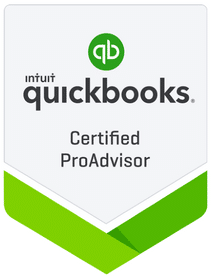- Patrick Roney
- (877) 503-8607
Follow Us :
Follow Us :
Proledge
April 7, 2025
Bookkeeping and accounting are words that are used interchangeably by most people. It’s true that both of these are about the financial management of your business, but in different ways. The financial management of your business must always be accurate, and this could start by understanding the difference between bookkeeping and accounting. It’s essential to understand that it’s all about making sure that everything in your business is accurate and efficient. The financial side of a business can be the most stressful topic to discuss with a business owner. Let’s understand what it’s about! We put together this article to make research easier for you!
But, before getting into the details of it all, it’s important that you understand you need someone to help you with your finances. One of the main reasons is that someone who has knowledge on the topic will move quicker, and will provide more accurate results. Having knowledge on accounting tools is a skill that not everyone has! Not having to worry about your finances allows you to move your attention towards other areas of your business. As a business owner, you should focus on your employees and your clients; or whatever part of the business you have an expertise in.

Bookkeeping is about organizing and recording a company’s financial transactions. It is basically the foundation of good accounting. A bookkeeper will record financial transactions, manage accounts payable and receivable, will do financial record maintenance, and will generate basic financial records. All of these tasks refer to keeping track of the money that comes in, and the money that goes out. A bookkeeper will make sure that a steady cash flow is maintained, and that all financial documents (invoices, statements, receipts) are organized. Useful, right? As mentioned previously, this is the foundation for accounting, but also for your business.
There are many documents, on the financial side, that need to be recorded correctly. Your business depends on the fact that people will record everything accurately; so that everyone else can do their job. Everyone you are working with, either employees or collaborators, must be paid on time. Invoices must be sent to clients, also on time. This shows people that your business is serious and professional. A bookkeeper will do this for you. The stress you feel when you know that you might miss a deadline, is the worst type of stress; with a bookkeeper you won’t have to experience that anymore.
You can contact us anytime if you have questions or encounter a problem with your bookkeeping program.
Now, if bookkeeping is the foundation, accounting is the first level of the building on top of it. Accounting is about analyzing and interpreting all of the data that the bookkeeper recorded. A bookkeeper will use that data, and they will provide insightful advice when it comes to the financial side of your business. Making informed decisions when you have a business is something that you must ensure, and an accountant can help with that. You cannot make a decision if you don’t know all of the factors. Bookkeeping and accounting are like siblings, they work together to make their parent happy.
Accounting has many functions, and knowing them can help better understand the difference between bookkeeping and accounting. Let’s take a look at some of the key functions that it has, and what do they mean for you and the business.
These are only some of the bigger things that an accountant will do for you. But there are many tiny tasks that go unseen, that need someone to do them, and that someone is an accountant.

Now that you know what both of these are, what are the differences between the two? The first difference is their purpose, bookkeeping is about recording financial transactions, while accounting is about analyzing and preparing reports based on them. To put it simply, bookkeeping is about keeping the data safe, and accounting is about using that data to provide insights. Another difference is the fact that a bookkeeper is more about the day-to-day financial activities, while accounting is about long-term financial planning.
Bookkeeper versus accountant? A bookkeeper will provide basic reports, an accountant will provide detailed reports. The bookkeeping responsibilities are different from the accounting ones, but that doesn’t make one better than another. Maintaining the records and ensuring accuracy is as important as managing taxes and analyzing data. It’s not a competition, but rather a collaboration. And, an efficient collaboration between the two, means efficiency in your business. If you are looking to build your foundation, and want some professional bookkeepers, you should definitely check our services!

As mentioned in the beginning, these two terms are often used interchangeably; but they are rather interconnected. One cannot work efficiently without the other. An accountant has nothing to analyze if there is not a bookkeeper to record and organize the data. And a bookkeeper organizes and records data for nothing, if there is not someone to analyze it. It might sound silly, but these two are just like two puzzle pieces, or like milk and cookies. If you want a successful business, you need both of these, there’s no doubt about that.


Fill out the form below to sign up to our Blog Newsletter and we’ll drop you a line when new articles come up.

For many business owners, taking care of their business is like taking care of a baby. If you want a successful business, you need to always pay attention to the

It’s that time again! The tax season is slowly but surely coming to an end and that means you can’t postpone it anymore. You’ve got to figure it out. We

There are lots of businesses that need to find efficient ways to keep track of their finances nowadays, and if you are a business owner, you have experienced this first-hand.

As we all know, automated means of running your business have started to become very popular recently due to all of the perks that it provides. This is not to

So you’re at that point in developing your small business where you’re looking into accounting solutions. If so, you might have started to wonder what’s the best bookkeeping software for

Welcome to bookkeeping 101, the place where we discover how to do bookkeeping effectively, accurately and easily. If you’ve started your small business already or if you’re on the verge
Bookkeepers.
Professional. Affordable.
ProLedge is a bookkeeping services firm.
Copyright © 2024 All rights reserved.